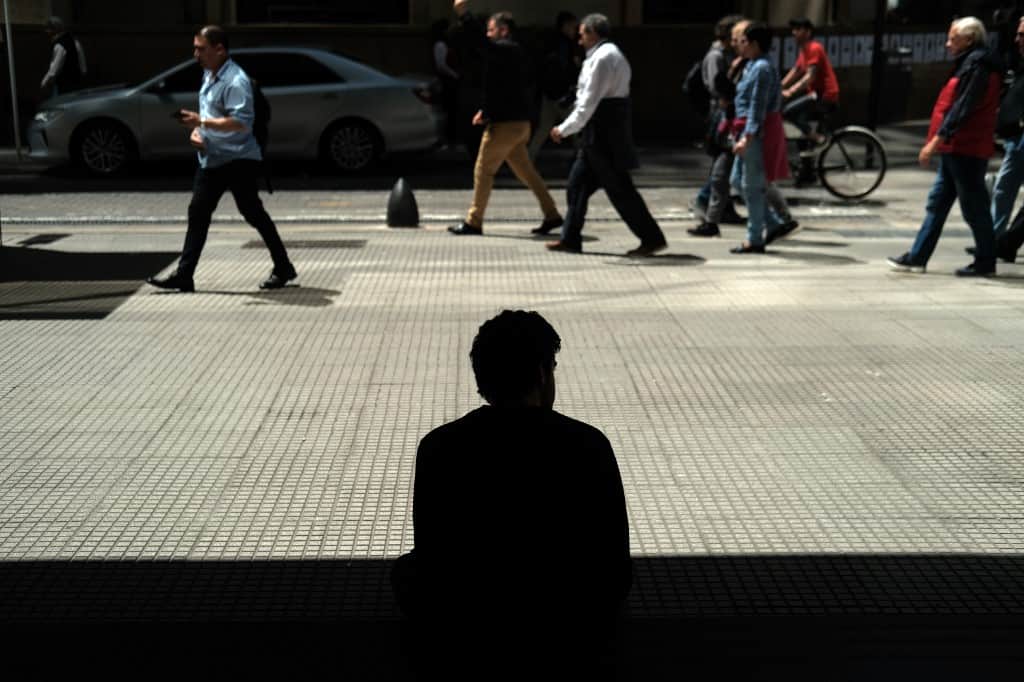South America’s third biggest economy is in “virtual default,” according to Argentina’s President Alberto Fernandez, who claims it is suffering a similar crisis to the worst of its history in 2001.
Mired in recession, with sky-high poverty, inflation and unemployment, Argentina’s GDP is expected to fall by 3.1 percent in 2019.
Center-leftist Fernandez has blamed his market-friendly predecessor Mauricio Macri’s austerity measures for Argentina’s economic woes.
Fernandez has announced tax hikes on foreign currency purchases, agricultural exports and car sales while pledging a 10,000 ($160) peso bonus for pensioners and a six-month freeze on public utility prices.
Here, AFP looks at the five keys to Argentina’s economic crisis and the task facing Fernandez to try to solve the country’s problems.
– Inflation –
Argentina is one of the few countries in the International Monetary Fund’s emerging market and developing economies that has failed to control inflation. While the average for the group is expected to end 2019 at 4.7 percent, the IMF predicts Argentina will hit 57 percent: outstripped only by Venezuela and Zimbabwe.
Already in 2018, Argentina registered inflation of 47.6 percent, worsening a situation that began with its 2001 crisis after the country ended its 11-year-old policy of pegging the peso to the US dollar.
Argentina’s crisis was sparked by a sudden crash in the pesos’s value 18 months ago. It lost more than 50 percent in 2018 and is down another 38 percent this year.
The rampant inflation and falling value of the peso has hit Argentines’ spending power drastically.
– Recession –
Argentina has been in recession since the second quarter of 2018. Last year, the economy shrank by 2.5 percent. The IMF expects the economy to shrink by another 3.1 percent this year and 1.3 percent in 2020. It has already contracted for the last 17 months in a row.
The new government is hoping to stimulate the economy by encouraging buying and refunding taxes to small and medium-sized businesses — an important sector in the bid to prevent unemployment, which has hit almost 10 percent, from continuing to increase.
– Poverty –
Rising poverty, which currently affects 41 percent of Argentina’s 44 million people, is one of the biggest concerns. Earlier this year, Congress adopted a food emergency law to allocate greater resources to social programs.
Fernandez has launched a plan alongside businesses and social organizations to “tackle hunger” by distributing food stamps.
– Deficit –
Macri’s tough austerity measures enabled Argentina to reduce its primary fiscal deficit from almost 7.0 percent of GDP in 2015 to an estimated 0.9 percent this year.
In return, the International Monetary Fund agreed to a bail-out loan of $57 billion, some $44 billion of which has been disbursed. However, Fernandez has said he will refuse the remainder.
– Debt –
Debt has risen to $335 billion, including the IMF loan. The IMF expects Argentina’s debt as a percentage of GDP to reach 93 percent by the end of the year, compared with 53 percent when Macri came to power.
Fernandez says Argentina is in “virtual default” and blames Macri’s government for leaving his administration in a position where it cannot pay its debt.
The government has stressed that Argentina wants to pay its debt but insists that “to be able to pay, we have to be able to, and for that, there needs to be growth.”
In the meantime, the country unilaterally postponed a $9 billion maturities payment until August, a move that saw rating agencies Fitch and S&P downgrade its credit rating, though Fitch later reversed that.






